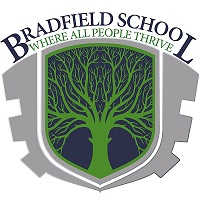Digital Guardians

"Technology can be our best friend, and technology can also be the biggest party pooper of our lives. It interrupts our own story, interrupts our ability to have a thought or a daydream, to imagine something wonderful because we're too busy bridging the walk from the cafeteria back to the office on the cell phone." Steven Spielberg
In today's digital era, the internet has become an integral part of our lives, offering immense opportunities for learning, communication, and entertainment. Last week in assemblies and form time, we revisited with the students how to keep themselves safe online. The virtual realm presents both exciting possibilities and potential hazards, making online safety a paramount concern, especially when not at school.
Understanding the Challenges: The internet, with its vast expanse of information and connectivity, can expose our children to various risks. Cyberbullying, inappropriate content, online predators, and excessive screen time are just a few of the concerns parents and carers must address. At school, we try to empower our students with the skills and awareness necessary to stay safe in the digital world. By working together, we can create a safe and supportive online environment for our young people.
Educate Yourself: Before guiding our children, it's crucial to educate ourselves about the online platforms they use, their features, and the potential risks involved. Explore the apps and websites they frequent, engage in conversations with other parents and educators, and stay updated on the latest trends and security measures. These are often changing and updating, but by becoming familiar with the digital landscape, we can better support our children in their online endeavours. To support parents and carers, we send home a monthly online safety newsletter, and have advice on cyber-bullying and social media guidance, which will help you navigate the online world and its potential risks for our children. You can find these on our website here.
Establish Clear Boundaries: Setting clear boundaries for internet use helps create a healthy balance between online and offline activities. If you haven’t already, work together with your children to establish guidelines on screen time limits, appropriate content consumption, and social media interactions. Encourage them to disconnect from screens during family time or before bedtime to promote a good night's sleep and maintain a healthy lifestyle.
Teach Critical Thinking: Equipping our children with critical thinking skills is essential for their online safety. At school, we teach them to question the authenticity of information, identify potential online threats, and recognise the importance of privacy. At home, talk to your child to encourage them to verify the sources of information and avoid sharing personal details with unknown individuals. By fostering critical thinking, we can collectively empower our children to make wise choices and navigate the online world confidently.
Use Parental Controls: Today's technology offers various tools and parental control options to safeguard our children's online experiences. From filtering inappropriate content to monitoring screen time, parental control apps and settings can assist in maintaining a secure digital environment. Explore these features on devices, apps, and platforms your children use, ensuring their settings align with your family's values and safety concerns. A guide to support you in this at home is on our website here.
Open Communication: Maintaining open lines of communication is vital in building trust and understanding with our children. Encourage them to share their online experiences, both positive and negative, without fear of judgement. By fostering an environment where they feel safe to discuss their online activities, we can promptly address any concerns that may arise. Regular conversations about responsible internet usage and the potential risks will empower them to make informed decisions. Similarly, open communication with school is important; should you find out information linked to online and social media use that you think it is relevant for us to know to support your child in school – please do share this promptly. All our contact details are on our website here.
Edited and instructed by Deborah Banks, Deputy Headteacher but written by Chat GTP, an online AI platform!
